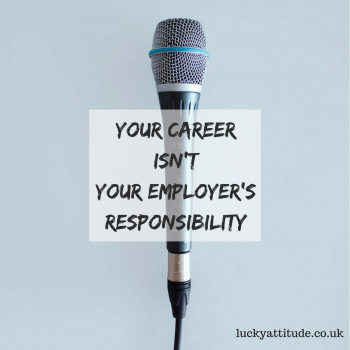6 Easy Ways to Level Up Your Employability

Climbing the career ladder to greater financial security and beating out the competition in the job hunt is more essential than ever.
However, don’t rely solely on your employer for your professional development. Make it your own business to safeguard your future and invest in yourself.
Continuous learning should expand your horizons beyond your current job at hand and set you up for potential career shifts, which are likely to happen.
So, if you’re ready for your next career move, here are 5 tried and tested tips for successfully supercharging your employability.
1. Understand yourself and how you like to work
You probably have a million things you enjoy doing. But where do you start? How do you pick a job to dedicate your time to?
Try answering this question to figure it out:
“How would you want to fill your days?”
It’s so easy to focus on the outcome, the glory, the fame. But if you don’t enjoy the journey that gets you there, it’s not the best career choice for you.
In order to find a job that actually suits you, you need to identify what you’d be most excited about doing day to day and work backwards into what that ideal job would be.
Take some time out for introspection to get in tune with what makes you tick professionally.
If you’re struggling to figure out what makes you tick, you can try self-assessment exercises available online. By answering a number of questions about your likes, skills, and competencies, professional assessment tools like the Firo-B Assessment will help you uncover what motivates and drives you and reveals any potential blind spots in terms of professional development and career direction.
2. Research your sector
Whatever sector you work in, you might find it useful to research the opportunities for growth within your career path. This may also convince you to learn new skills or even change careers altogether.
You can use websites like the National Careers Service to research job profiles. This will give you a list of qualifications you may need for a role, as well as potential salaries, working hours, and typical responsibilities.
3. Learn some new skills
Many people think that once they have the paper, and they start going to work, they can stop learning.
This attitude diminishes your potential because rapid changes in almost every area of the work are making your current knowledge obsolete.
Depending on your career choice, you might want to learn some new skills that will further your current level of experience or enable you to train for a new job.
For example, if you work in bookselling, by starting up a Bookstagram (a book lover’s Instagram account that features a collection of artistically composed photos of books) and networking with other bloggers, you could boost your knowledge of the book market and what consumers are currently reading and reviewing.
You could learn these new skills through hobbies, or even more formal courses. Universities like Anglia Ruskin offer various distance learning courses for undergraduate and postgraduate degrees in a variety of different disciplines from Business Management to Mental Health.
The advantages to distance learning are numerous; it’s a hugely flexible learning arrangement and can fit around any existing commitments like childcare and employment.
4. Talk to others/ network
Talking and networking with others in your industry, or the field you aspire to work in, is essential. It gets your name known in the relevant circles and grants you the opportunity to express your passions and interest.
Gleaning tales from others who have a wealth of experience in the industry may also give you an idea of which direction you would like to go in, and the goals to set yourself to get there.
5. Stock up your transferable skills
Transferable skills are skills and abilities that are relevant and helpful across different areas of life: socially, professionally, and at school.
Soft skills like teamwork, leadership, motivation, time management, and organisation are key showing you as an all-rounded individual with personality and skills other than just straight-up employment experience.
No matter your job, your success will always depend on how useful you are to other people. You will always need to interact with people.
You can use websites like Skills You Need to read up on important transferable skills needed for employment
6. Polish your CV
Your CV is what’s going to get you shortlisted (or not) for the interview. It’s the employer’s first impression of you, so it’s important to get it perfect.
I’ve read many CV writing tips in my life, and I found that there is one thing that all excellent CVs have in common, no matter the industry – they are concise!
Be short and to the point: put your best experience and qualifications at the front of the page, so that your potential employer gets an idea of who you are immediately!
Update your CV as you take on new responsibilities at your current work or gain new skills as you never know where your next opportunity can strike.
If you’re struggling to make your CV shine, you can hire a copywriter to bring out your best qualities and ensure that it catches the right attention.
Do you have any tips for boosting your employability? Leave your answer in the comments below!
